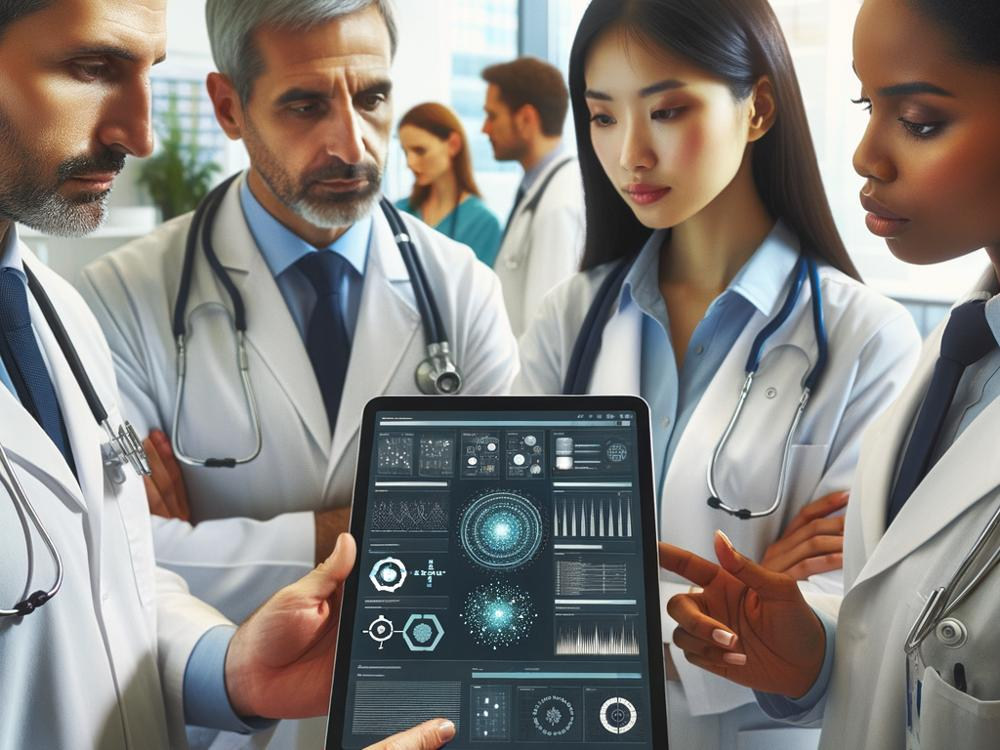Title: Revolutionizing Healthcare: The Impact of Machine Learning
In the fast-evolving world of technology, machine learning is a superstar, especially in the realm of healthcare. Imagine walking into a hospital where your diagnosis begins not just with a doctor’s wisdom but with the insights of an intelligent system trained on millions of health records. This isn't science fiction; it's the present and future of healthcare, thanks to machine learning. So, let's dive into how machine learning is transforming healthcare solutions, making them smarter and more effective.
1. Predicting Diseases Earlier than Ever
One of the most groundbreaking contributions of machine learning is its ability to predict diseases long before symptoms appear. By analyzing patterns in vast amounts of health data, machine learning algorithms can spot the early signs of conditions like diabetes, heart disease, and even some types of cancer. This means doctors can intervene much sooner, often changing the course of a disease before it becomes serious. Imagine the impact on a patient's life when a potentially life-threatening condition is managed or even prevented thanks to early detection.
2. Personalizing Treatment Plans
Everyone’s body responds differently to treatment, and figuring out the best approach can be a complex puzzle. Machine learning is helping solve this puzzle by enabling personalized medicine. By crunching data from previous treatment outcomes, genetic information, and lifestyle factors, machine learning models can help doctors create tailored treatment plans. This bespoke approach not only improves patient outcomes but often reduces side effects, ensuring treatments are as comfortable as they are effective.
3. Enhancing Diagnostic Accuracy
Diagnosis is the first step in any treatment plan, and getting it right is crucial. Machine learning is enhancing diagnostic accuracy, particularly in areas like radiology and pathology. For instance, AI algorithms trained on thousands of x-rays or MRI scans can assist radiologists in spotting minute details that might indicate the presence of diseases such as cancers. These systems act as a second set of eyes, reducing the chances of human error and ensuring patients receive the correct diagnosis quickly.
4. Streamlining Operations and Reducing Costs
Hospitals are complex organizations, and managing them efficiently is a herculean task. Machine learning is making a big difference here by optimizing hospital operations. From managing patient flow to predicting which departments will be in high demand, machine learning algorithms help hospitals run more smoothly. This not only improves patient care by reducing wait times and ensuring resources are distributed effectively but also helps control costs, making healthcare more affordable.
5. Revolutionizing Drug Development
Developing new medications is a lengthy and costly process, often taking over a decade from concept to pharmacy shelves. Machine learning is set to revolutionize this process by speeding up the discovery of new drugs. By analyzing the structure of molecules and predicting their effects on the human body, machine learning algorithms can identify promising compounds quickly. This can significantly cut down the time and expense involved in drug development, bringing new treatments to patients faster.
6. Improving Patient Engagement and Care Management
Machine learning is also making strides in patient engagement and care management. With the help of apps and wearable devices, patients can now monitor their health and share this data with their healthcare providers. Machine learning algorithms analyze this real-time data to offer personalized health advice, remind patients to take their medication, or even alert doctors if a patient’s health data suggests an emergency. This continuous loop of feedback ensures patients are actively involved in their healthcare, leading to better outcomes.
In Simple English: It’s a Healthcare Revolution!
In essence, machine learning is not just an addition to the healthcare industry; it's redefining it. From predicting diseases before they manifest and tailoring treatments to the individual, to enhancing diagnoses, optimizing operations, accelerating drug development, and encouraging patient involvement, the impact is profound. This technological revolution is making healthcare more proactive, personalized, efficient, and effective. As machine learning continues to evolve, its potential to transform healthcare is limitless, promising a future where diseases are not just treated but prevented, and everyone has access to care that's as unique as they are.
In conclusion, the beauty of machine learning in healthcare is its ability to turn data into lifesaving actions, ensuring that as the world grows, our approach to healthcare becomes smarter, more compassionate, and inclusive. It’s a journey from data to diagnosis, diagnosis to treatment, and treatment to recovery, streamlined by the intelligence of machines working hand-in-hand with the expertise of healthcare professionals. The promise of machine learning in healthcare is immense and it’s a fascinating time to watch these transformations unfold.

